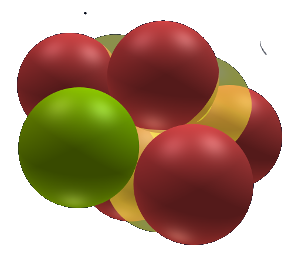Carl Johnson graduated in 1967 with a degree in Physics from the University of Chicago. He has written many papers about physics, cosmology and other subjects. He attempted to publish some of his work in the official science channels but was denied because his theories do not agree with prevailing thought. Instead he publishes on the internet.
Johnson has meticulously gone through the vast data stored by NIST and come up with some startling conclusions about the neutrino, neutron, strong force and weak force. His approach to science is very similar to Edo's in that he is looking at the numbers first and then coming up with a theory based on observation. He agrees with SAM in that the nucleus is structured and held together by electrostatic forces instead of the strong force. What we call a neutron in the nucleus is actually shared electron between protons.
Listed below are some of the papers Johnson has published relating to the atom. We believe these to be seminal works in understanding the atom and the forces within it. His ideas have been very useful in figuring out how the structures defined by SAM are held together.
- Neutrinos Do No Exist - Discusses how the neutrino was hypothesized in 1930 by Wolfgang Pauli to resolve issues when accounting for spin when a neutron decays into a proton and electron. Pauli mistakenly treated spin as a scalar quantity instead of a vector quantity and physicists have repeated the error ever since. So Pauli had an interesting solution, he conjured up the neutrino, a particle with no volume, no mass, no charge, no anything else - except it had just the proper spin to resolve the issue with his erroneous scalar mathematics.
-
Nuclear Physics May be Fairly Simple - The neutron is thought to be held together by the "Neutron Binding Energy". Because scientists attempt to account for this binding energy, they run into problems with their equations. However if you forget about the binding energy then the calculations become very simple and work to great accuracy. Therefore the neutron cannot exist as a bound proton and electron. There simply isn't any binding energy to make this happen. Instead the nuclear neutron is an inner electron that is shared with other protons. The inner electrons move rapidly inside the nucleus and hold the protons together. There is no need for the mysterious strong force and the weak force.
-
Nuclear Physics - Statistical Analysis of Isotope Masses - This paper is a detailed mathematical analysis of NIST data which shows the neutron does not exist, binding energy doesn't exists, and the nucleus is made from protons and electrons. This paper is a must read for anyone attempting to understand the nucleus. Carl Johnson deserves a Nobel prize for this astounding work.
While studying physics in Chicago Carl Johnson found many of the theories he was taught used incorrect mathematics and had inconsistencies. As he puts it:
"When I was in Physics Courses at the University of Chicago in the 1960s, I had already been aware that both the Gravitational and Electrostatic Forces act with inverse-square distance dependencies. One of the Professors explained to us students that there is a Strong Nuclear Force which acts with an inverse-FIFTH-power distance dependency. That drove me crazy for most of my Career in Nuclear Physics, as it seemed so wrong by having to have dreamed up a weird law of science which does not exist anywhere else in the Universe. Worse, some different Professors there described the Strong Nuclear Force as having an inverse-THIRD-power distance dependency. So even the Physicists who were teaching us could not agree on a very basic fact! I later learned that there has never been any basis for claiming either a third-power or a fifth-power dependency, as those were both assumptions which were not based on any actual physical evidence!"
- Log in to post comments
